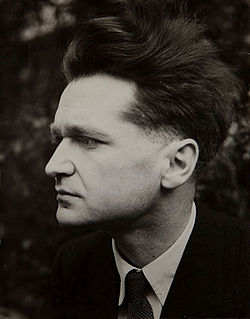A Quote by Christina Stead
Related Quotes
In the new alchemy, we have a similar kind of way of thinking. Our internal space includes our intuitions, our thoughts, our senses and our feelings, and from these we construct or build a picture of the outside world. From intuition and thought, we construct time. We also construct space from thought and our sensations. From our senses and our feelings, we experience energy, and from our intuitions and our feelings, we experience motion.
We need a better way to talk about eating animals. We need a way that brings meat to the center of public discussion in the same way it is often at the center of our plates. This doesn't require that we pretend we are going to have a collective agreement. However strong our intuitions are about what's right for us personally and even about what's right for others, we all know in advance that our positions will clash with those of our neighbors. What do we do with that most inevitable reality? Drop the conversation, or find a way to reframe it?
And so, through all the thick mists of the dim doubts in my mind, divine intuitions now and then shoot, enkindling my fog with a heavenly ray. And for this I thank God; for all have doubts; many deny; but doubts or denials, few along with them, have intuitions. Doubts of all things earthly, and intuitions of some things heavenly; this combination makes neither believer nor infidel, but makes a man who regards them both with equal eye.
I think basketball has changed tremendously and for the better. I think that obviously the game is better. I think the skill of the players are better, the strength, the overall athleticism, the teamwork involved. I think coaching is better. We have more exposure for our game than ever. You know, our sport has grown significantly in really the last five years. It's pretty amazing.
We all know of people who thought they could to it (whatever “it” is) tomorrow. We have all procrastinated on such a way, and often to our personal regret. It happens time and again, putting off things that we convince ourselves might be better, more meaningful, more appropriate for another time. So often that better time either never comes or really isn’t better or more appropriate after all. And then, sadly, the window of opportunity -to do something great- closes.
I'm not sure leaders listen enough, especially to their people. And I've always thought in everything I've tried to do in my life, in the jobs I've had, is that if we can turn our transmitters off and our receivers on more often, we're better leaders and we know more of what is going on and therefore we can lead more effectively.







































